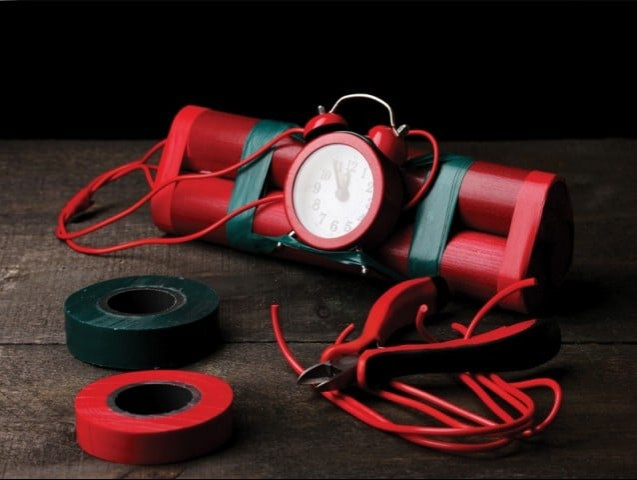Qissa Khwani Bazaar blast: Suspects acquitted due to lack of evidence, poor police investigation
Police failed to produce documentary proof or statements from prosecution witnesses.

Four suspects who were named in the Qissa Khwani Bazaar blast the previous year were acquitted by an anti-terrorism court last month.
According to a copy of the order available with The Express Tribune, police failed to produce any documentary proof or statements from prosecution witnesses to prove the involvement of the suspects.
On September 29, 2013, a powerful car bomb tore through Qissa Khwani Bazaar, killing at least 48 people, including 17 members of a family. After the blast, an FIR was registered against unidentified persons under sections 302, 324, 427 of the Pakistan Penal Code, sections 3 and 4 of Explosive Substances Act and Section 7 of the Anti-Terrorism Act 1997.
The statements of 20 prosecution witnesses were recorded in the case – including injured persons, judicial magistrates, doctors and police officials.
On October 28, 2013, when the investigation was handed over to the Deputy Superintendent of City police intelligence wing Fazle Mula Khan. Mattani police arrested four suspects — Niazbeen, Asif Khan, Sheraz and Haji Habib — in another case involving the recovery of explosives.
All four were named in the Qissa Khwani case even though there was no proof.
“During the course of investigation, Niazbeen had disclosed the involvement of his deceased uncle Mosam Khan in the bombing,” the judgment read.
Moreover, the other three accused had previously appeared in court but refused to confess their involvement in the case.
During the trial, the public prosecutor tried his best to prove the case against the suspects.
He alleged that they had committed a heinous crime and were Afghan nationals. However, his arguments were discredited by the defense attorney.
“There is nothing on record suggesting the accused are Afghan nationals and there is no direct evidence against them,” said the defense counsel.
According to the order, there is no direct evidence against Mosam Khan or the other suspects, except for Niazbeen’s confessional statements.
“Niazbeen has neither confessed to the crime nor has he highlighted the involvement of the other three suspects,” the order of Judge Ayub Khan read. “His statement cannot be relied upon as after it was recorded, Niazbeen was handed over to the investigation officer to be locked up in jail,” states the order.
It further reads that the police was unable to trace the accused and shifted the burden of the offence on the suspects just to escape blame.
Published in The Express Tribune, December 14th, 2014.













COMMENTS
Comments are moderated and generally will be posted if they are on-topic and not abusive.
For more information, please see our Comments FAQ